When Philip Conkling and Peter Ralston founded Island Institute in 1983, they recognized that Maine’s island and coastal communities were facing a distinct set of challenges shaped by time and place. Fishing families were adapting to reduced catches. Energy costs were spiking. Community members were migrating off islands. A changing ecosystem in the Gulf of Maine was becoming evident.
They also recognized these coastal communities’ unique history of innovation and resiliency in the face of change. Tapping into and amplifying a spirit of creativity, perseverance, collaboration and optimism was a hallmark of the founders, and continues to be at the center of the Institute’s community building mission. We share a deep and genuine passion for helping people and sustaining these vital places, come what may.
Thank you to our founders, donors, supporters, partners and all who have made this work possible.
Explore our history of impact.
Island Institute is founded by Philip Conkling and Peter Ralston, who co-lead the organization for 30 years.
Early Institute initiatives include managing island ecosystems and exploring the role Maine islands play in the state’s fisheries. An ongoing theme throughout Island Institute’s initiatives is ensuring that Maine’s year-round unbridged island communities remain sustainable.
Watch The Working Waterfront interview above with founder Philip Conkling for more on Island Institute’s founding.
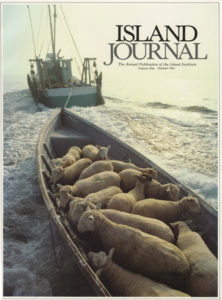
Island Institute publishes the first Island Journal, celebrating island and coastal communities through stories, art, and poetry. It remains the organization’s signature publication in 2023.
This first issue features the famous cover photo, “Pentecost” by Peter Ralston, current events in the fishing industry, columns from islanders, profiles on influential fishermen, and beautiful photography of the coast.
Island Journal Cover Photo: Peter Ralston
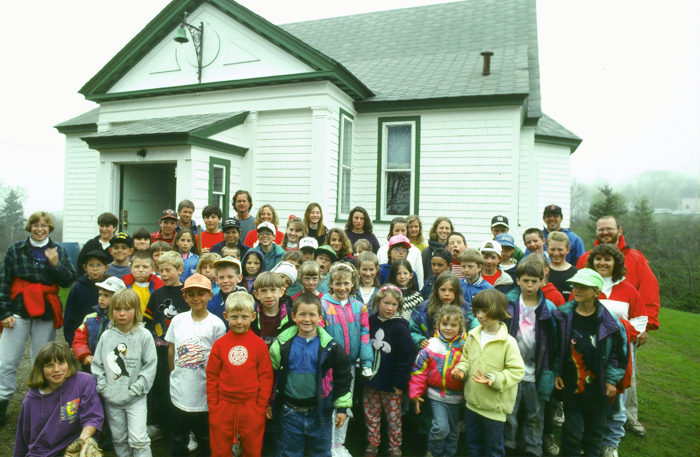
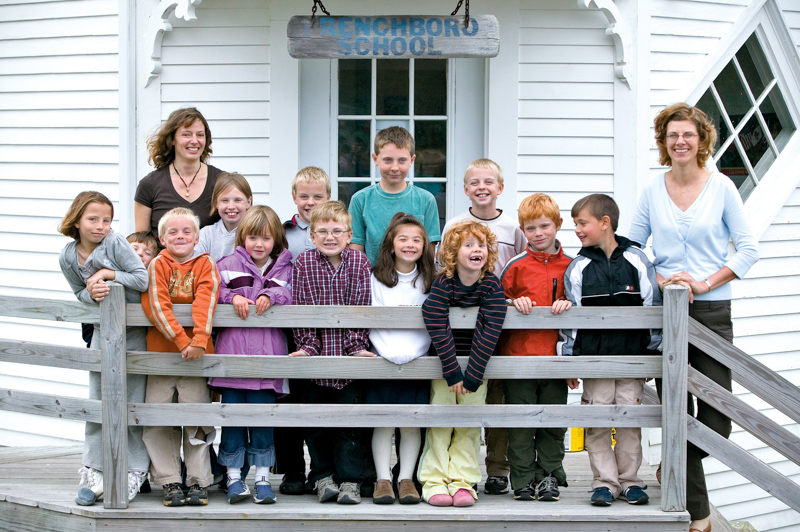
Recognizing the role an island school plays in the stability of an island community, Island Institute starts its Island Schools Program with a mission to sustain Maine’s island schools.
This program includes an annual Maine Island Schools Conference that convenes island teachers and gives them a space to share solutions. It later grows into an exchange program for island students and a scholarship program for those students who wish to expand their education beyond high school.
Photos: Peter Ralston
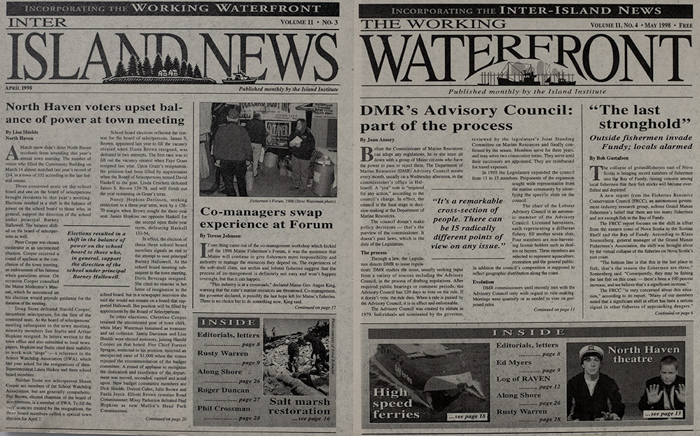
Island Institute begins publishing newspapers that are distributed along the Maine coast and islands. Originally separate papers, including Inter-Island News (news about Maine Islands) and The Working Waterfront (news with a broader Maine-coast audience), the papers are eventually consolidated.
36 years later, The Working Waterfront is still published ten times a year with a distribution of 40,000 copies.
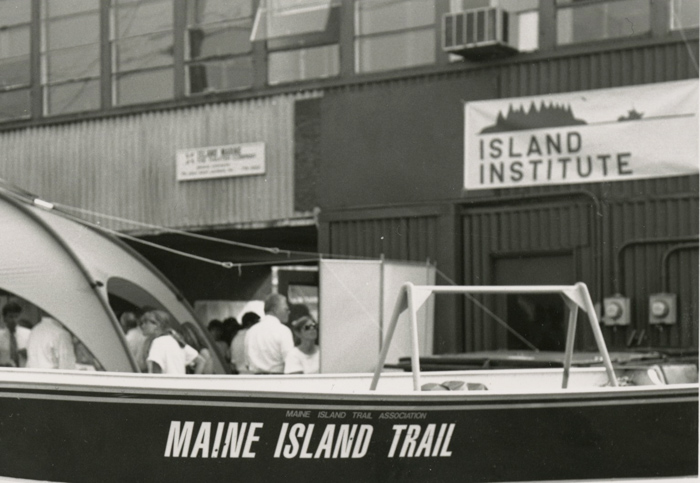
Island Institute teams up with the State of Maine to study uninhabited state-owned islands. Realizing the need for recreational use of these places, a unique collaboration with island owners is established, and the Maine Island Trail is created and managed by Island Institute.
In 1993, this program is spun off from Island Institute into its own nonprofit, Maine Island Trail Association.
Photo: Peter Ralston
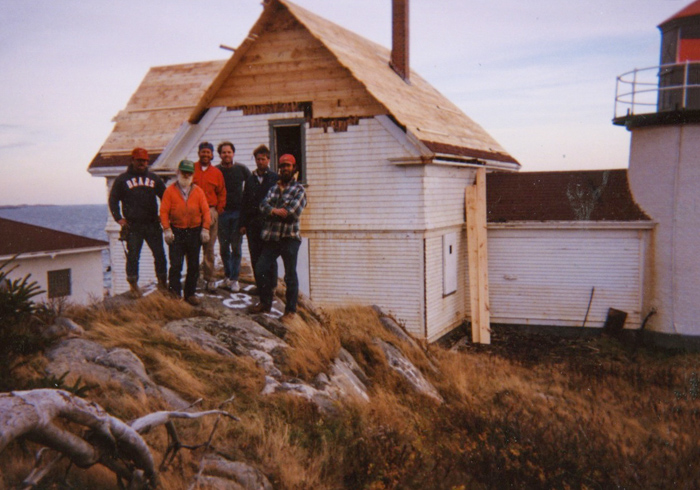
The destruction of Moose Peak Light by the Coast Guard causes Island Institute to intervene and preserve Maine’s remaining lighthouses.
After an act of Congress which Island Institute helps initiate, most remaining lighthouses are transferred to local towns and nonprofits. This leads to ongoing restoration work at the hands of Island Institute and partner organizations that step up to protect the iconic structures.
Photo: Peter Ralston
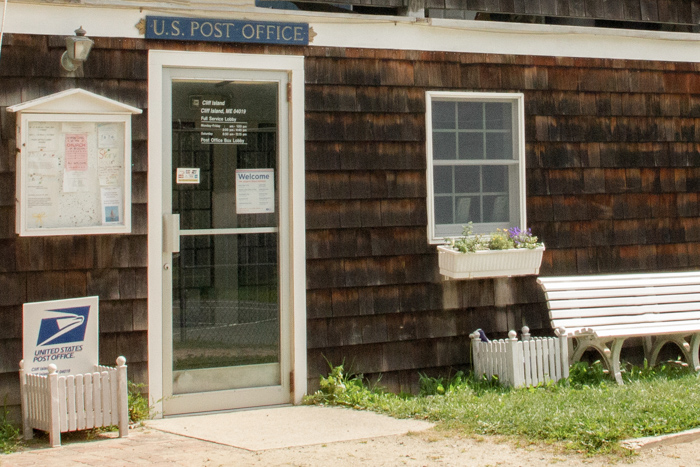
The United States Postal Service attempts to close the post offices on Great Cranberry Island, Swan’s Island, Frenchboro, and Cliff Island. Island Institute effectively advocates to preserve postal service to these islands, and the Postal Service reverses its decision.
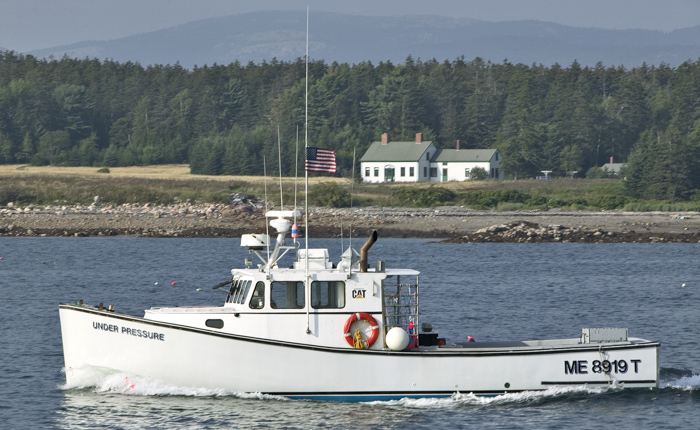
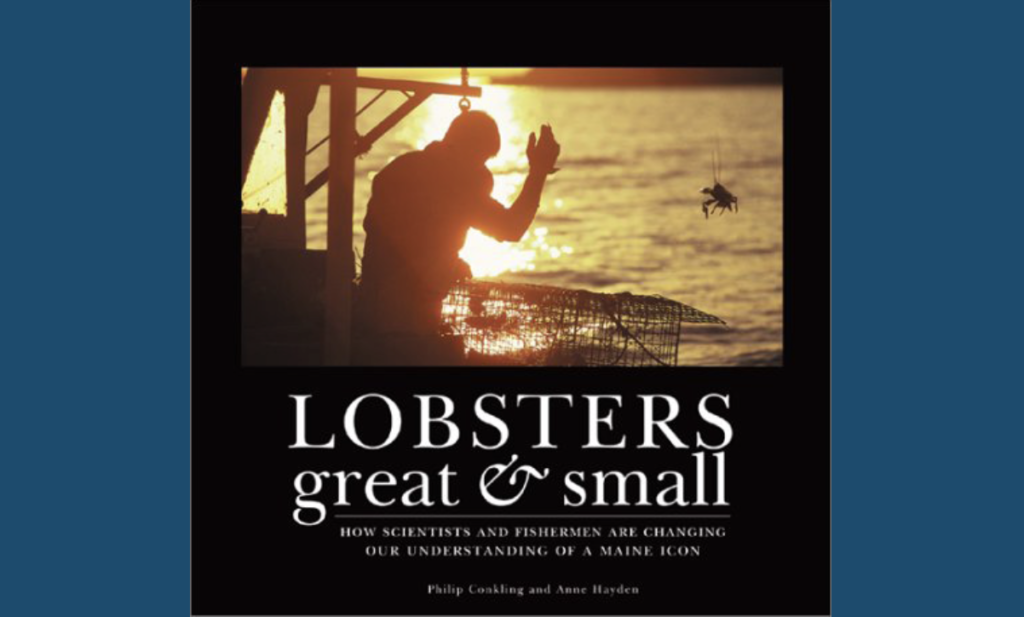
Throughout the 1990s, the lobster catch is inconsistent and its future uncertain in large part due to fewer larvae settling on the ocean floor. Island Institute administers the Penobscot Bay Marine Resources Collaborative, a group of organizations studying the lobster lifecycle in Penobscot Bay.
Scientific investigation ensues, and with help from the Maine Geological Survey, Maine Department of Marine Resources, NOAA, and Bigelow Laboratory, Island Institute maps the geological and biological characteristics of the bay and develops a model to predict the settlement of lobster larvae.
178 lobstermen participate in the research, and the collaboration leads to the publication of Lobsters Great & Small, a document that integrates this data with anecdotes and visuals.
Photos: Peter Ralston
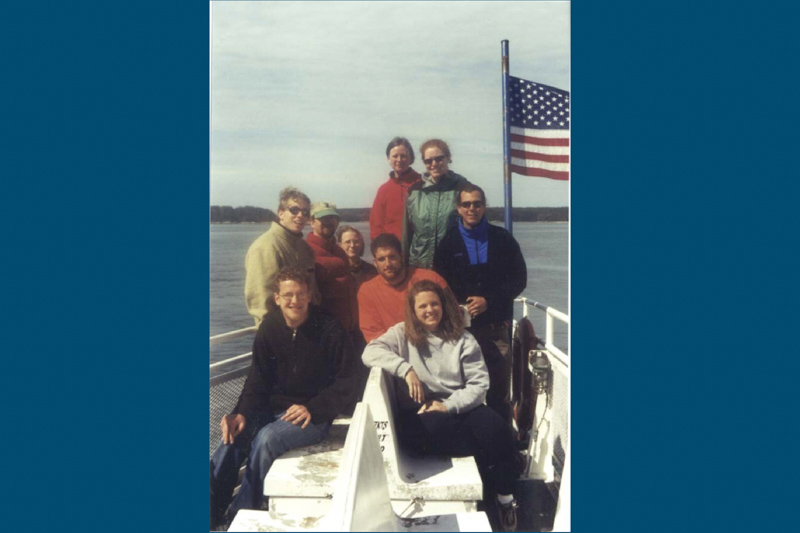
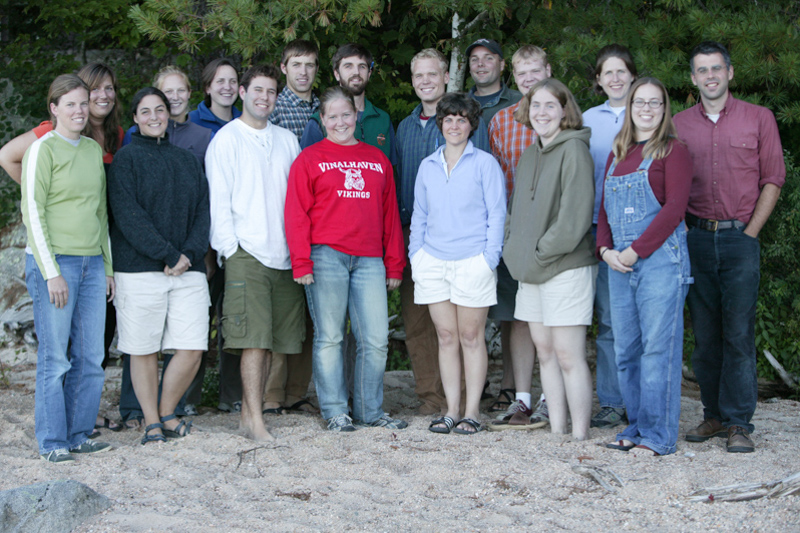
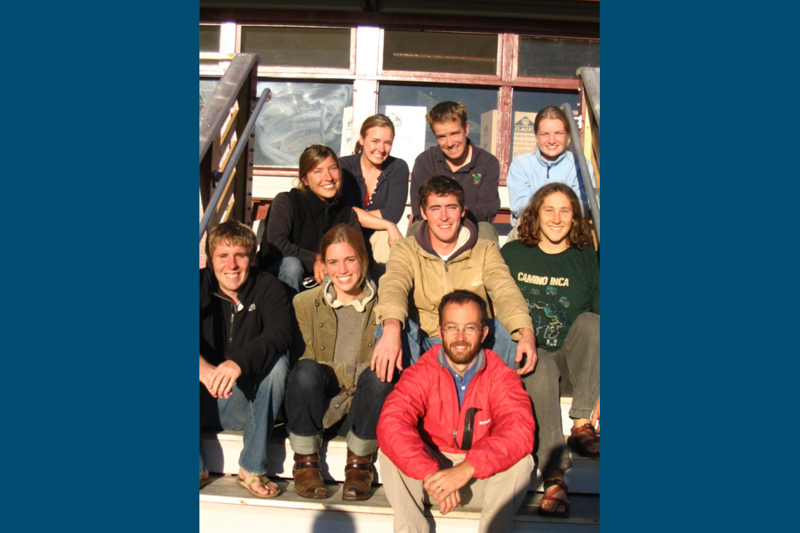
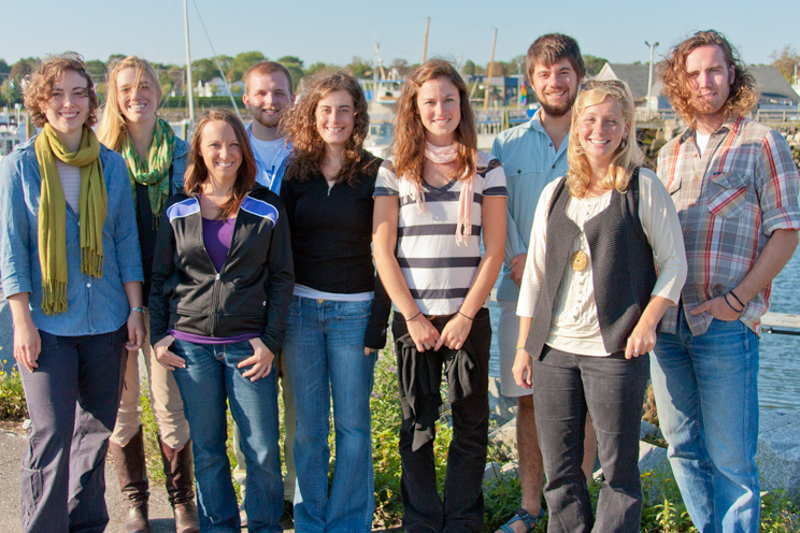
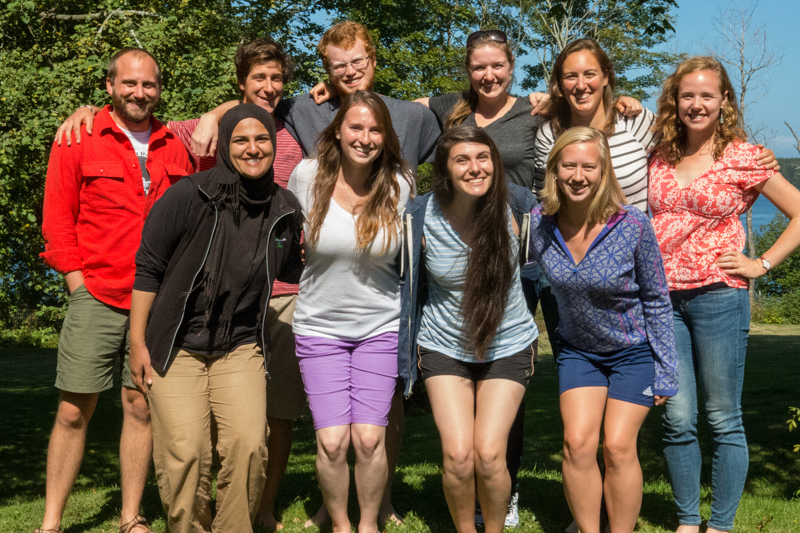
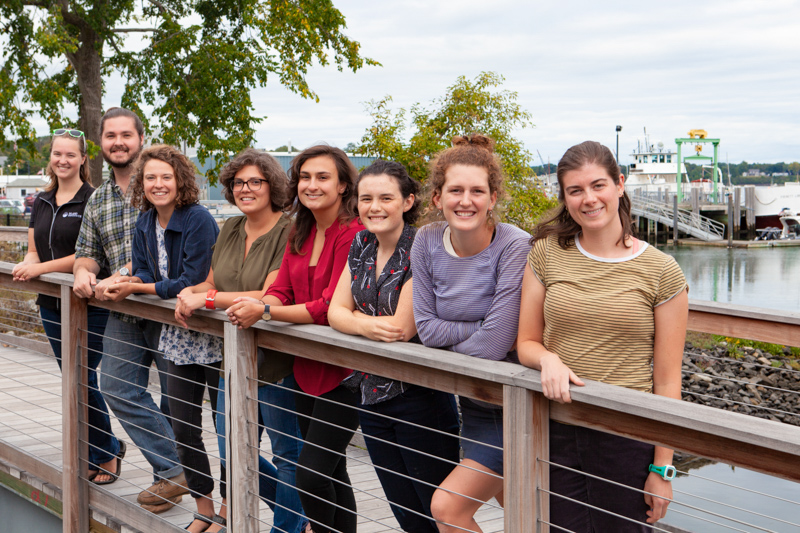
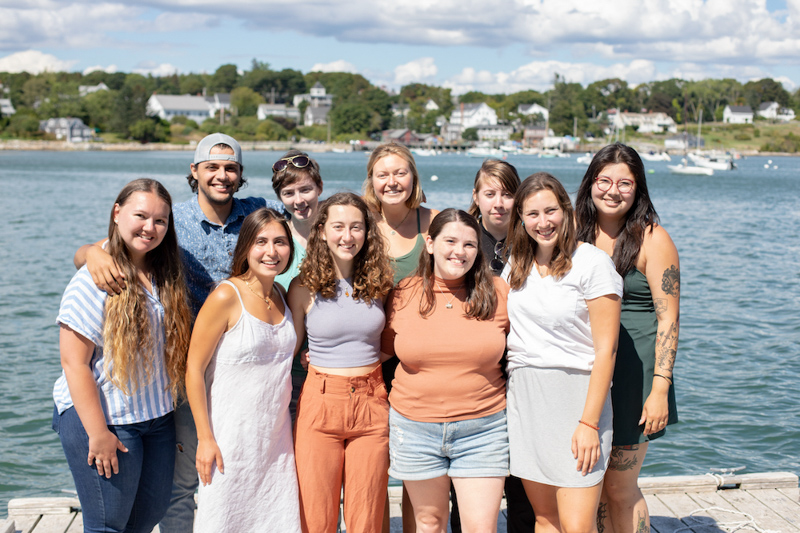
Recognizing the need for human capacity on islands, and the opportunity to train young leaders, Island Institute launches the Island Institute Fellows program. Island Institute Fellows support municipalities and nonprofits in rural Maine communities, providing an “extra set of hands” to accomplish impactful work.
Over the years, Island Institute Fellows have provided more than 350,000 hours of technical assistance to community-directed projects. The program has allowed recent graduates to gain valuable experience and communities to receive the critical support that is needed to address challenges and implement solutions. Approximately 50% of these young professionals have stayed and made their homes in Maine.
Photo 1: Peter Ralston
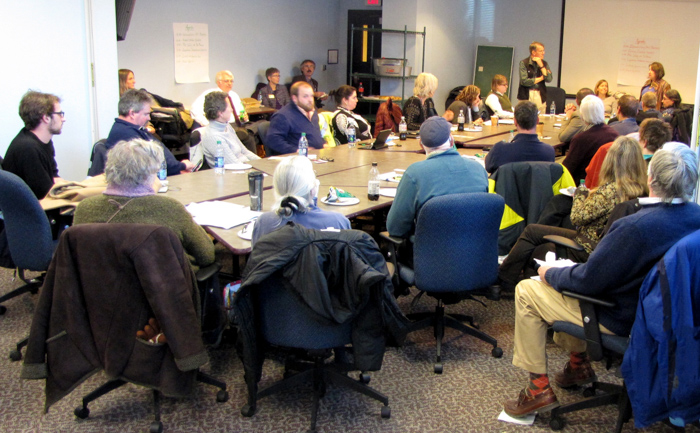
Recognizing that islands have much to learn from one another and have a louder voice when they are united, Island Institute starts the Maine Islands Coalition. Leaders from each year-round island community meet regularly to discuss community issues and share solutions. Elected officials are also invited to Maine Islands Coalition meetings so they can hear what matters to their island constituents.
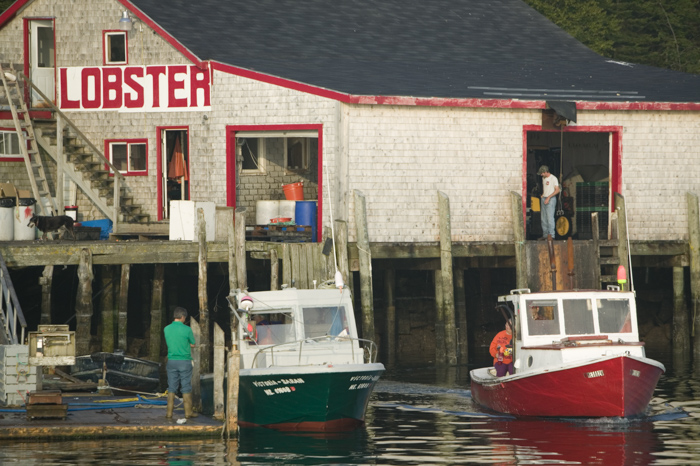
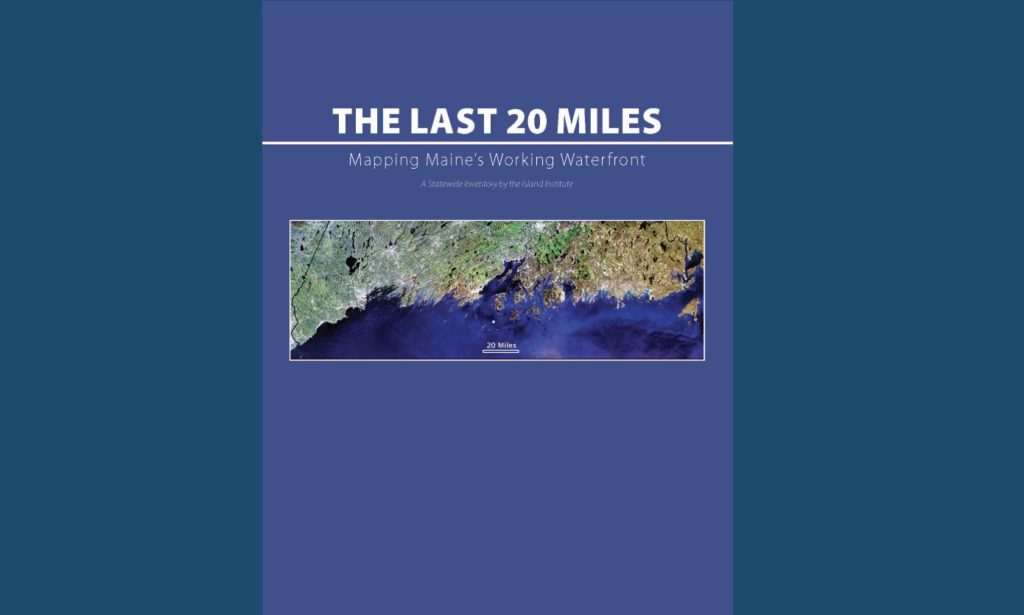
Maine’s working waterfront, the critical link between fishing and the rest of the seafood supply chain, becomes increasingly threatened as real estate development grows on the coast, edging out traditional wharves and waterfronts.
Island Institute releases its study “The Last 20 Miles” that—like its name implies—indicates that only 20 miles of Maine’s 5,000-mile coast remain as working waterfront.
Island Institute prioritizes waterfront preservation and successfully advocates for the State’s Land for Maine’s Future program, to include working waterfront conservation.
Additionally, Island Institute leads the Working Waterfront Coalition which successfully passes a constitutional referendum giving a property tax break to fisheries businesses that permanently protect their properties from converting to other uses.
In 2021 the Institute commissions an updated study showing continued pressure on Maine’s working Waterfront.
Photo 1: Peter Ralston
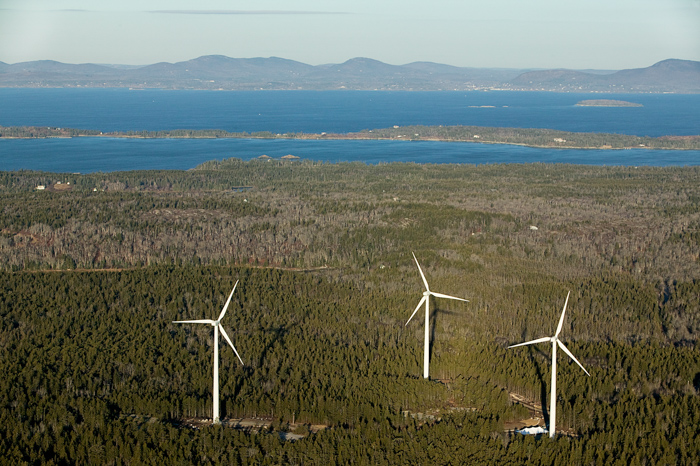
Island Institute facilitates an effort to construct three wind turbines that lead to energy independence for Vinalhaven and North Haven.
Largely acting as a mediator, Island Institute ensures that the community’s needs are addressed. Ultimately, the Islanders vote overwhelmingly in favor of the project, and the turbines are constructed.
Photo: Peter Ralston

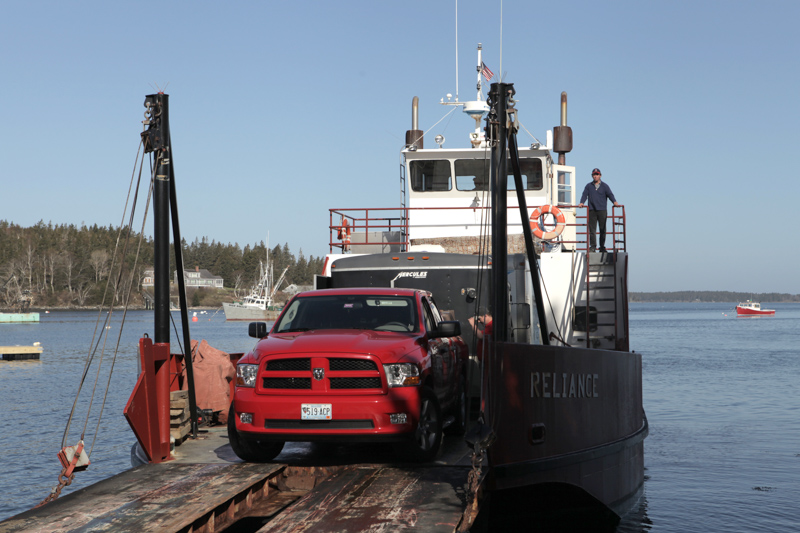
Island Institute begins its campaign to reduce energy costs for Maine Islanders who experience some of the highest electricity and heating costs in the country. Some of these efforts include workshops for the construction of window inserts to reduce drafts, barging insulation trucks for island weatherization projects, and bulk ordering energy efficient lighting for island homes.
Island Institute also begins hosting the annual Island Energy Conference, where islanders, other rural residents, and energy sector leaders solve energy problems and share resources.
This work culminates with the report, Bridging the Rural Efficiency Gap which outlines the energy challenges rural communities face, as well as the solutions these communities and their partners have put into practice.
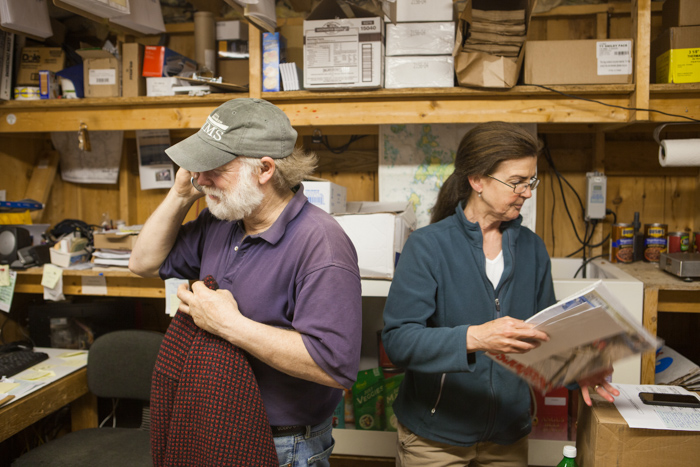
Island Institute awards grants to small businesses and other critical enterprises and later launches the Tom Glenn Community Impact Fund. The grants and loans from this fund are targeted towards innovative entrepreneurs, energy efficiency projects, infrastructure improvements, and other areas of community impact.
Since 2012, Island Institute has awarded well over a million dollars to businesses, nonprofits, and municipalities throughout the coast. The Tom Glenn Community Impact Fund is still active in 2023.
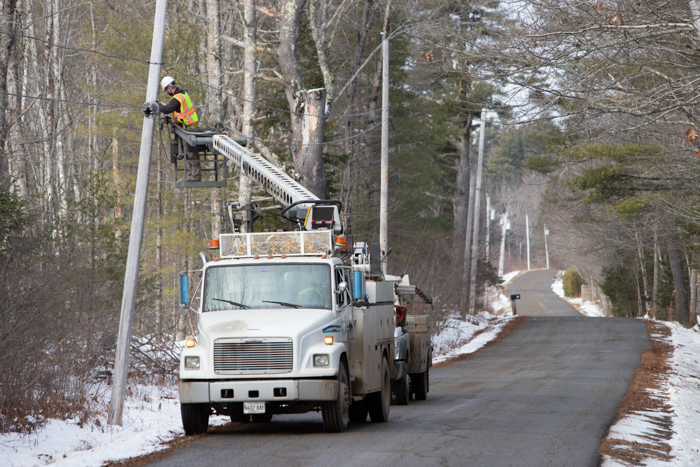
Island Institute becomes a leader in the movement to connect rural Maine with high-speed internet. Sparsely populated areas, specifically Maine’s islands and peninsulas, have historically been underserved by internet service providers. Island Institute notices a need for technical support as leaders in Maine communities take on the challenge of bringing high-speed internet to their homes and businesses.
Island Institute supports these broadband working groups with its “Community Driven Broadband Process” and guides them through grant applications and relationships with service providers. Island Institute continues this work to connect Mainers with this essential service and is an active member of the Maine Broadband Coalition.
When Island Institute began its broadband work, only one of Maine’s 15 year-round unbridged island communities had 100% fiber-to-the-home coverage. In 2023, five of the islands are connected, with four more that have a buildout funded and in progress.
The Institute has given technical and financial assistance for broadband to more than 85 municipalities across the state and has shared our community-driven broadband process model nationally.
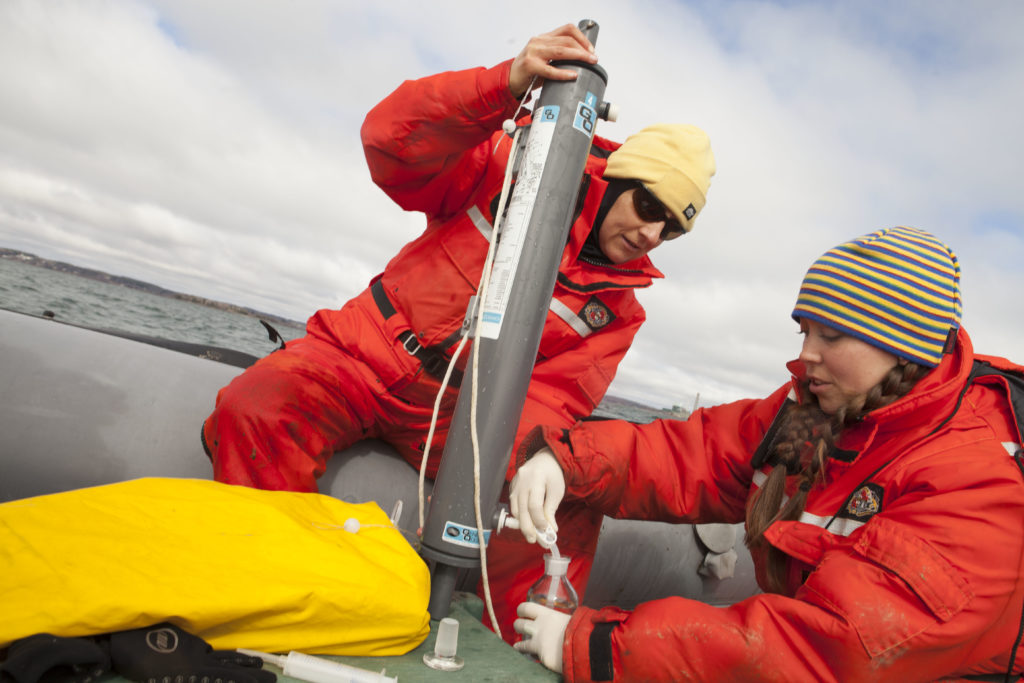
Shell-forming species are increasingly at risk due to ocean acidification caused by climate change. Island Institute teams up with researchers from Bigelow Laboratories, Bangs Island Mussels, and other partner organizations in an effort to test the remedial effects kelp can have on growing shellfish.
The research is ongoing, but so far, the data indicates the kelp can have a positive local effect on ocean acidification, improving the health of nearby shellfish.
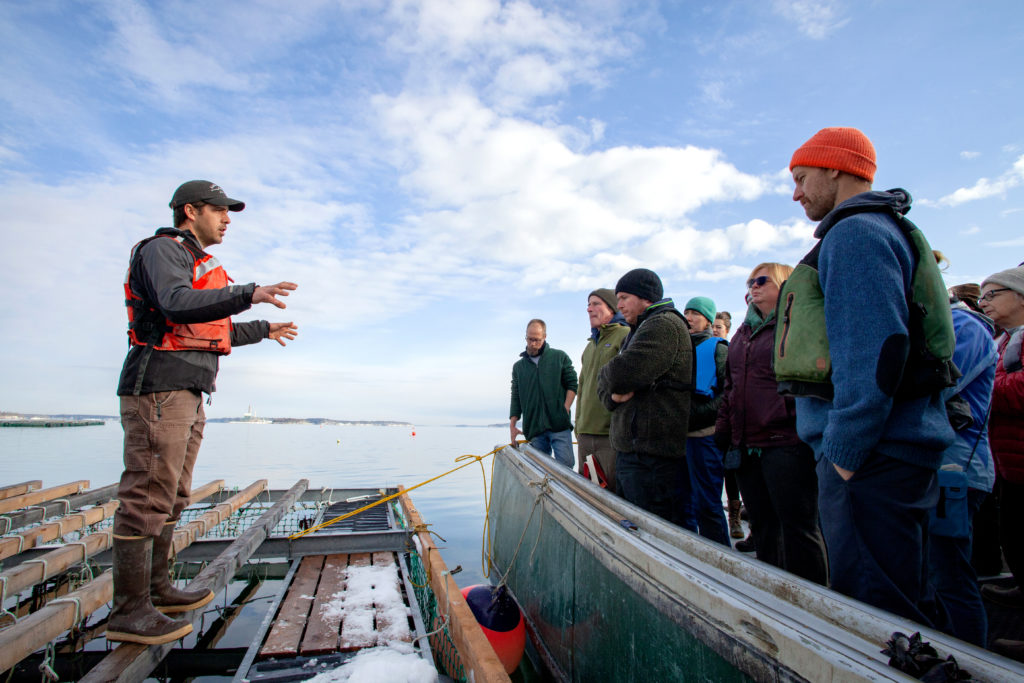
Island Institute launches the Aquaculture Business Development program, a series of hands-on learning opportunities for fishermen and marine entrepreneurs seeking to diversify their incomes. The participants meet throughout the course of a year to learn from those already in the industry and to network with key players across the supply chain—from seed growers to buyers and processors. Once the participants complete the program, Island Institute continues supporting them as they start their farms including site selection, water quality testing, and financial assistance.
Between 2016 and 2019, 120 individuals received training resulting in 33 new kelp and shellfish aquaculture businesses.
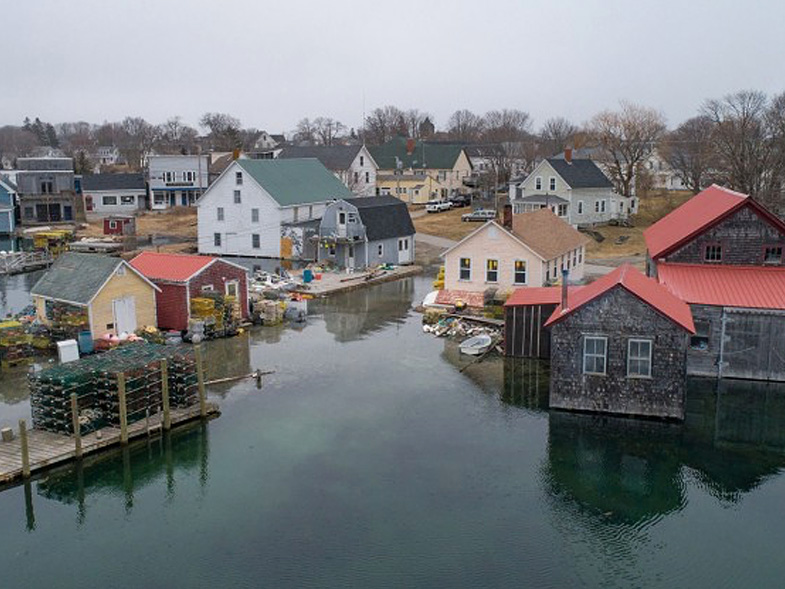
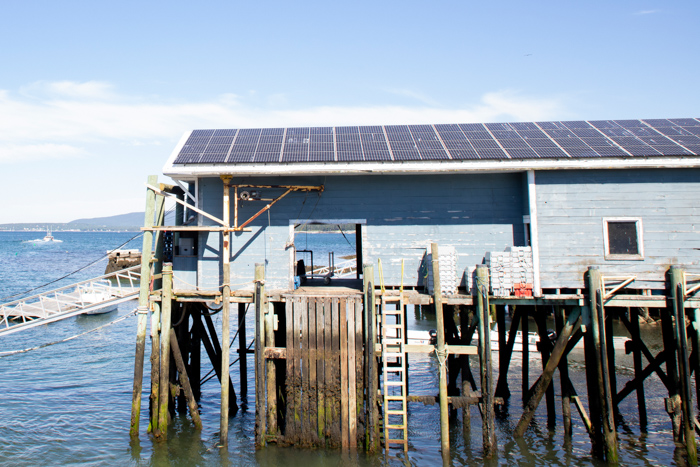
In response to the accelerating impacts of climate change on Maine’s coast, Island Institute expands its climate action efforts, including preparing coastal communities for sea level rise and guiding the marine industry’s transition away from fossil fuels. Institute Staff are partnering closely with the Governor’s Office for Policy Innovation and the Future and play a lead role in advocating for climate solutions that serve Maine’s coastal and Island communities.
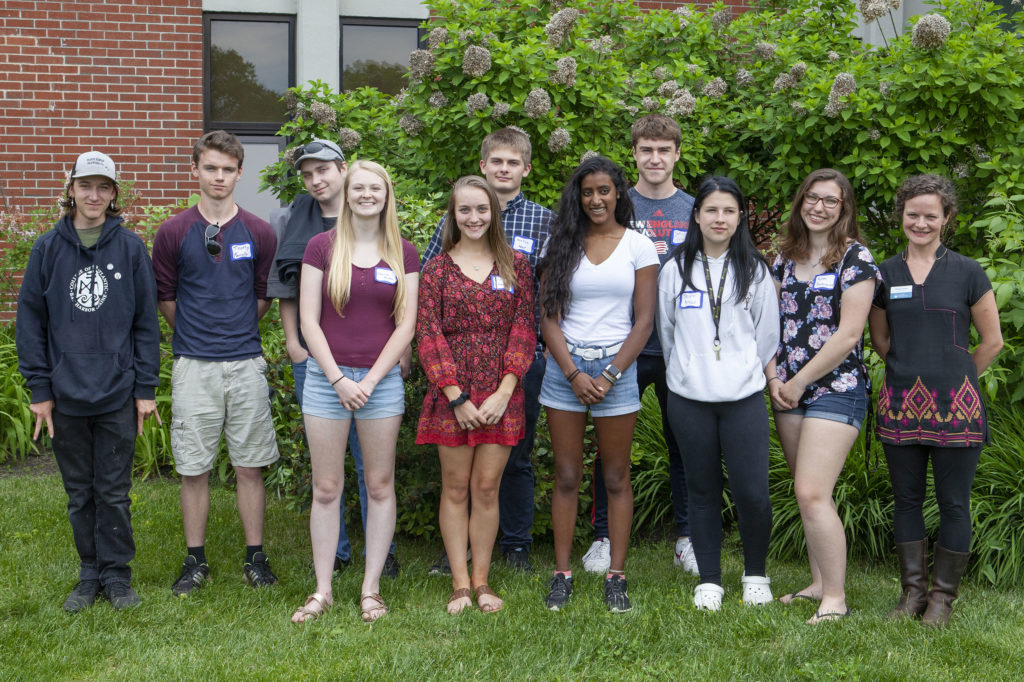
Island Institute builds upon its history of providing scholarships with the creation of Mentoring Access and Persistence (MAP) program which provides cohorts of Island students with scholarships and transitional support as they navigate their next steps after high school.
65 students from Maine islands have gone through the MAP program as of 2023.
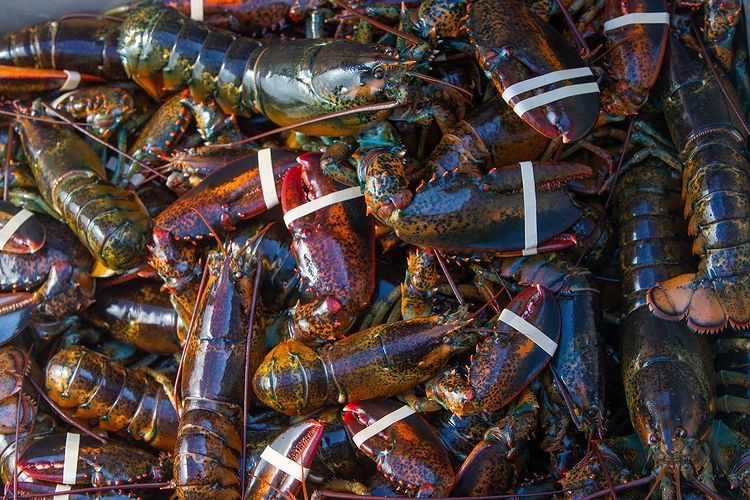
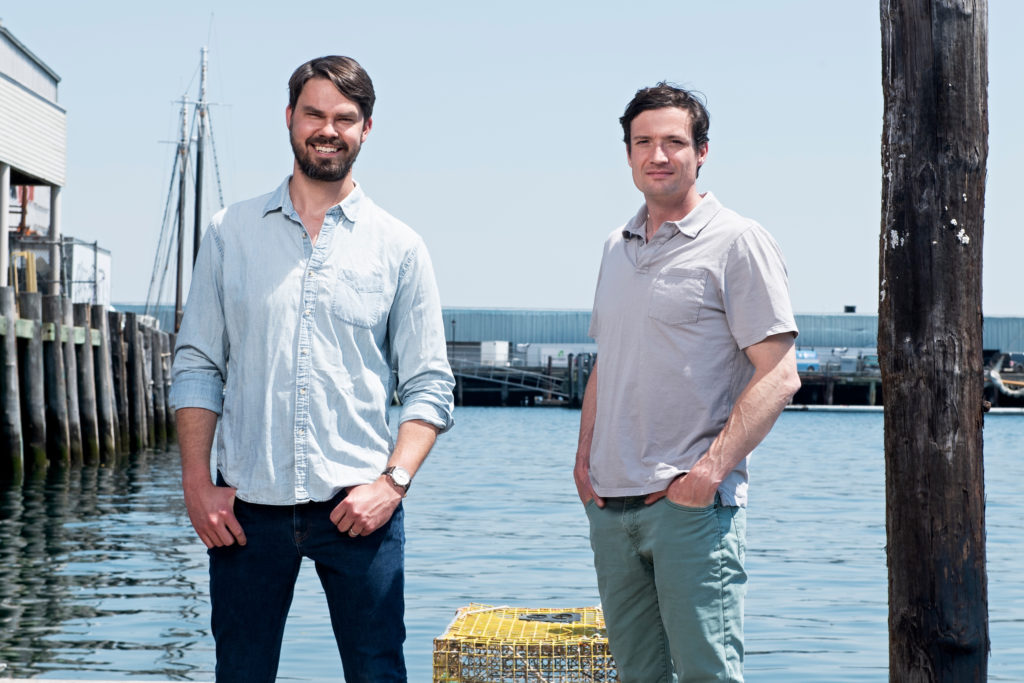
At the onset of the Covid pandemic, consumers spend less time in restaurants, and therefore the demand for lobster and other seafood products decreases. In response Island Institute begins a multi-year partnership with Luke’s Lobster which includes the rollout of a new online marketplace—ensuring that lobstermen and other fishermen have a ready market for their catch despite disruptions in the world economy.
Later, the Institute helps create a carbon footprint assessment of the Luke’s Lobster’s supply chain—showing lobster to be a low carbon source of protein. The Institute is planning carbon footprint studies in other marine industries including aquaculture.
In 2022 the Institute creates a taskforce to help Maine’s lobster fishery respond to continued regulatory changes through improved science and data, direct support to fishing families, and creating pathways to future work on the coast. Learn more here.
Photo 2: Nicole Wolf
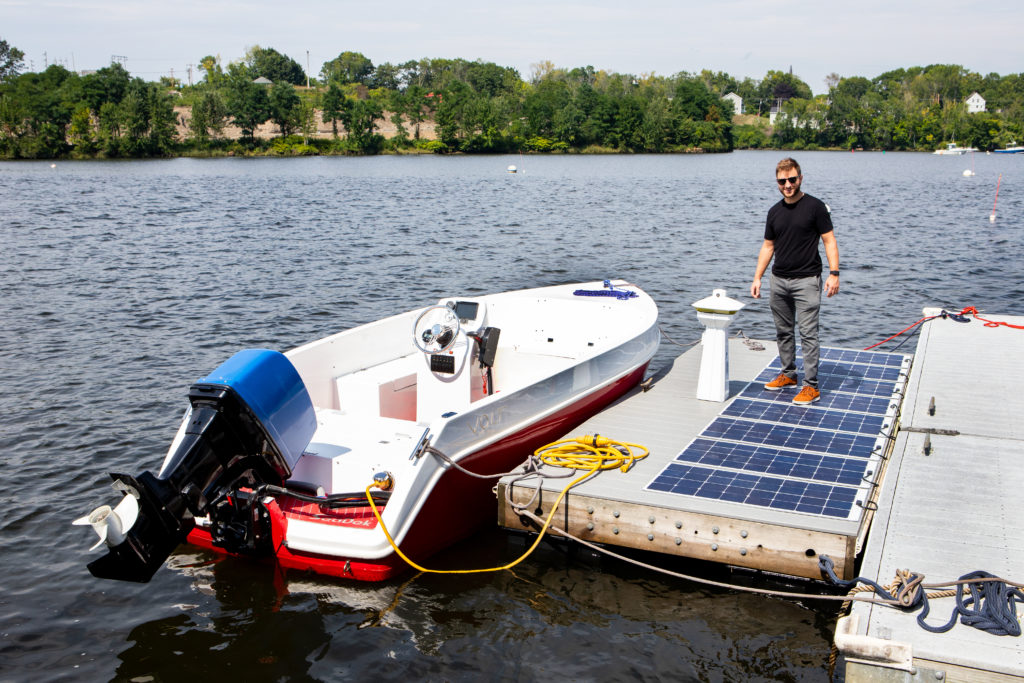
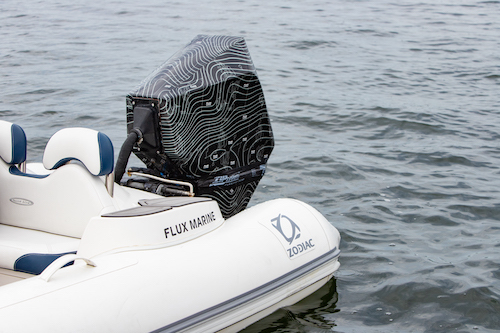
The Institute enters its 5th decade with innovative programs that build on its legacy of supporting resilient island and coastal communities.
This work includes support for waterfront businesses to invest in clean-energy infrastructure (such as solar powered wharves) and an interactive electric boat course designed to train a workforce in the emerging field of electric outboard technology.
Onward, preparing for what’s in store…
Maine’s island and coastal communities are facing new challenges and opportunities as Island Institute enters its 5th decade. The lobster fishery is under threat and climate impacts are accelerating, increasing the urgency to develop climate solutions.
We’re responding with direct support to Maine’s fishing families and innovative projects such as solar powered wharves and electric boats to create a more sustainable working waterfront. Our leadership efforts, including our flagship Island Fellows program, are building human capacity where it’s needed most on the coast. We’re working with community members, businesses and partners to create opportunities for Maine businesses and build a resilient coastal economy.


